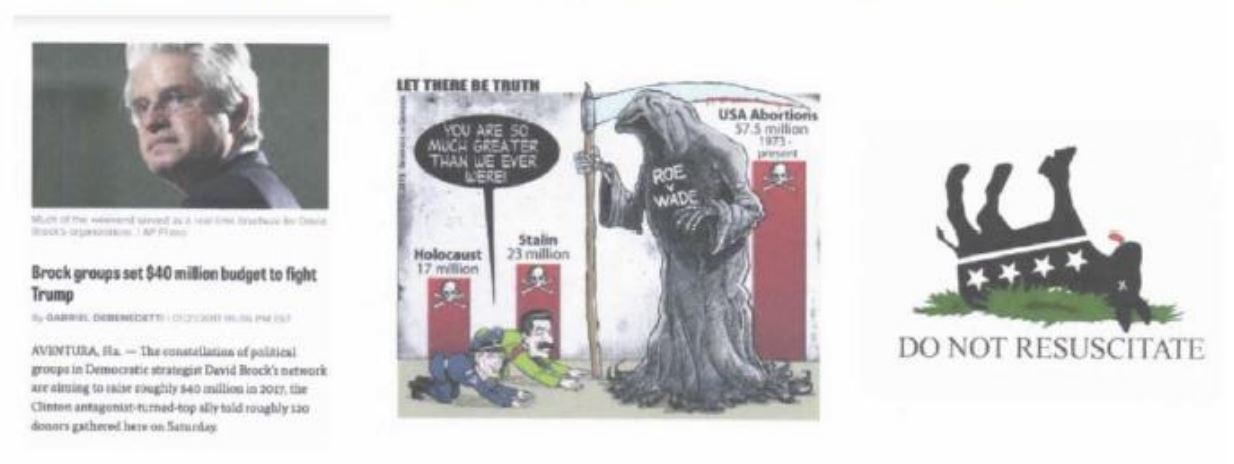Another Suspended Twitter User Loses in Court–Kimbrell v. Twitter
Just last month, I blogged about a suspended Twitter user who lost in court. This pro se lawsuit also fails. It makes me wonder: how many other suspended Twitter users have pending cases in court?
This lawsuit is also one of the multitudinous lawsuits that relates directly or indirectly to President Trump. Whatever else he’s done for/to the country, he is making American Litigation great again. #MALGA, or something like that.
In an irony I still can’t fully comprehend, Trump supporters disproportionately claim they are being deprived of their civil rights because they feel like their speech is being discriminated against (see, e.g., my discussion regarding the Dehen case). This case is illustrative of the apparent persecution complex. Kimbrell’s complaint asserts “that Twitter employs twitter trolls who are responsible for goading Twitter users who support President Donald Trump into engaging in purportedly abusive conduct, which Twitter subsequently uses as a basis for banning those pro-Trump Twitter users.” Really? Apparently emulating our President’s incessant denials of responsibility, this plaintiff apparently believes the problem is someone else’s fault. In response to these alleged Twitter trolls, Kimbrell posted the following tweets:
and the following “memes” (that’s what the court calls them; I’m not sure if I’d use that term for all of these):
In response, Twitter permanently suspended Kimbrell’s account for “participating in targeted abuse.” Kimbrell sued Twitter for improperly suspending her.
Looking at these five items, I’ll admit that I’m a little confused exactly what triggered Twitter’s intervention. The middle image denigrates tens of millions of victims, but it does make a political point. The two text tweets have some curse words and name-calling, but that’s pretty tame all things considered. The rest of it looks like standard Twitter nonsense.
Still, I support Twitter cracking down on users like Kimbrell. Twitter has been overrun by content that doesn’t advance any discourse but instead–primarily because its short format encourages zingers over reflection–exacerbates community division. I don’t know anything about the Brock book that Kimbrell and her alleged trolls are “debating,” but Twitter could reasonably decide that it’s not the right venue for such a complicated and nuanced “debate”; and Twitter might reasonably prefer that the dialogue relocate to a more suitable venue. In fact, if Twitter doesn’t want to end up as a cyber-cesspool, I think Twitter will need to retrain hundreds of millions of users how to use Twitter to advance the social good; and that will also require Twitter to shut hundreds of millions of not-appropriate-for-Twitter threads like the one Kimbrell engaged in. Such a wide-scale intervention would require lots of labor power and a massive reduction in Twitter’s users and usage, and I can’t imagine Twitter will incur those financial consequences. Instead, I expect we’ll see more “negative lotteries” where Twitter cracks down on some junk threads and lets others go (in ways that are hard for outsiders to understand), a recipe for further angst and litigation.
Fortunately, Twitter’s lawyers can provide some rare good news on this front. Twitter has the legally protected discretion to shut down users and threads, or let them stay, however it sees fit. Indeed, without that discretion, Twitter would either have to screen everything and go out of business, or accept community-destroying trolling and turn into a cyber-cesspool (and then go out of business). The result of Kimbrell’s lawsuit reinforces Twitter’s legal discretion, and that’s a good thing if Twitter hopes to last.
Kimbrell doesn’t come close to overturning the legal status quo. Several of the statutes she asserts do not support a private cause of action. Her wiretap claim isn’t specific enough. Her UCL claim can’t point to another legal violation and lacks any economic injury. Her fraud claim isn’t detailed enough; she tried to base it on Twitter’s generic claim that it runs a “free and open” platform, and Twitter’s rules state that it can prohibit abuse. Section 230 doesn’t come up at all, even though Section 230(c)(2) should have helped Twitter.
So Twitter can shut down Kimbrell’s account. Good! Now, how many other Kimbrell-like accounts will it shut down?


